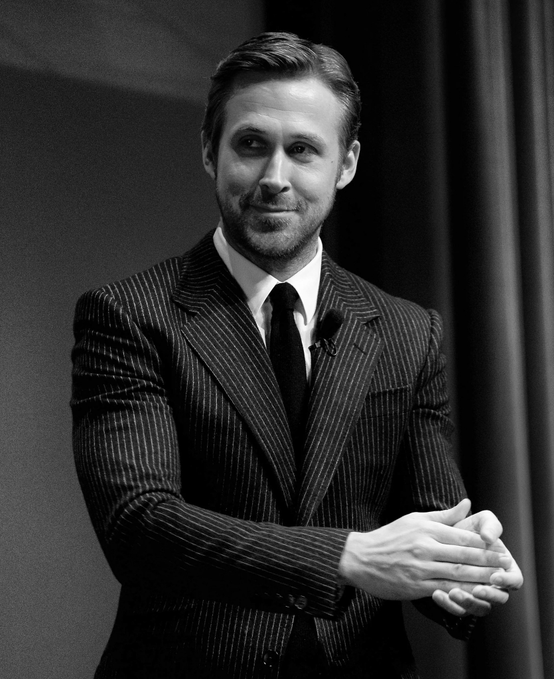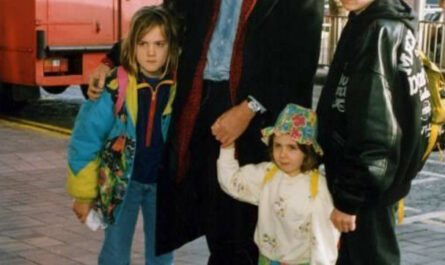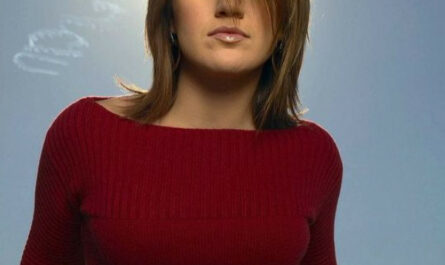Throughout his over 20-year acting career, Ryan Gosling has consistently proven his exceptional ability to inhabit complex, troubled characters grappling with the darker sides of human nature.
[bg_collapse view=”button-orange” color=”#4a4949″ expand_text=”Show More” collapse_text=”Show Less” ]
While capable of great charm and humor, Gosling seems most compelled by roles in brooding, violent films that explore the liminal spaces of morality and human connection. From independent art films to big-budget sci-fi thrillers, he has repeatedly delivered powerful and nuanced performances that linger in one’s mind long after the credits roll.
Several of Gosling’s most stark and affecting performances have come in neo-noirs or crime thrillers directed by renowned filmmakers like Nicolas Winding Refn, Denis Villeneuve, and Derek Cianfrance. These auteurs clearly recognize Gosling’s talent for conveying the inner-turmoil and questionable motivations of the haunted figures at the center of their tragic stories. The actor has become renowned for the stillness and subtlety of his performances, using piercing eyes and small gestures to suggest oceans of emotion under the surface.
Drive
One of Gosling’s definitive roles is the unnamed stunt-driver-turned-getaway-driver in Nicolas Winding Refn’s 2011 indie smash Drive. With long stretches of dialogue-free screen time, Gosling manages to use micro-expressions and body language to convey the inner-life and growing connections of a mysterious man who seems to have no past. As the violence ramps up, his character reveals an explosive darkness beneath the quiet, protective connection he forms with his neighbor Irene (Carey Mulligan) and her young son. Gosling’s character oscillates between sweet empathy and sudden, brutal violence, finally finding purpose through his abilities behind the wheel. The film’s shocking violence and iconic imagery cemented Gosling as a complicated leading man capable of tapping into a simmering, dangerous energy below the surface.
Only God Forgives
Gosling continued his collaboration with Refn in the 2013 art-house crime film Only God Forgives, delivering another tightly-coiled performance as Julian, an American expat running a Muay Thai boxing club as a front for his family’s drug smuggling operation in Bangkok. When Julian’s brother brutally murders a prostitute, it ignites a twisted series of events involving Julian’s gangster mother (Kristin Scott Thomas), a demonic police lieutenant (Vithaya Pansringarm), and an escalating series of gruesome violence. With lengthy silent scenes steeped in symbolism, Gosling holds the weighty screen time with a brooding stillness and moments of emotional eruption. His largely wordless performance haunts the viewer as he meets his fate.
Blade Runner 2049
Transitioning from indie films to a long-awaited sequel to a beloved sci-fi classic, Gosling continued to use stillness and restraint to powerful effect as replicant hunter ‘K’ in Denis Villeneuve’s 2017 film Blade Runner 2049. Tasked with hunting down rogue replicants, K uncovers a secret that leads him to question his own implanted memories and very identity, as well the fate of the former blade runner Rick Deckard (Harrison Ford). In a future world where bioengineered robots have developed human emotions and connections, Gosling portrays a replicant yearning to understand his own humanity. With echoes of classic noir detectives, K pursues existential questions of identity and reality while demonstrating increasing empathy and heartbreak. Gosling haunts the film’s stark futuristic landscapes with his mournful eyes and growing self-awareness.
The Place Beyond the Pines
Reuniting Gosling with his Blue Valentine director Derek Cianfrance, 2012’s The Place Beyond the Pines spans fifteen years as it follows two fathers whose fates violently collide. Gosling plays a tattooed motorcycle stunt rider named Luke who turns to robbing banks to provide for his former fling Romina (Eva Mendes) and their infant son. Luke’s escalating criminal acts place him in the crosshairs of ambitious rookie cop Avery Cross (Bradley Cooper). Gosling channels James Dean in his volatile, reckless performance as the chain-smoking outlaw-turned-bank robber, a wounded man driven by regrets over his own troubled childhood. The film’s sweeping exploration of family legacy and corruption continues to haunt after Luke’s story takes a tragic turn.
Half Nelson
In one of his first major indie film roles, Gosling earned an Oscar nomination for 2006’s Half Nelson as inner-city junior high teacher Dan Dunne, a young educator struggling with a secret crack addiction. After forming an unlikely friendship with one of his students, Drey (Shareeka Epps), Dan’s two worlds dangerously collide. In a raw and gritty performance, Gosling depicts Dan as charismatic and impassioned in the classroom, able to engage his students with unorthodox teaching methods. But outside school, his life spirals out of control, from smoking crack with strangers to getting violently assaulted. Gosling shows the dichotomy of a gifted teacher fighting inner demons and systemic social ills with nowhere left to turn. It remains one of his most emotionally affecting roles.
All Good Things
Gosling taps into darker territory playing a fictionalized version of real-life accused murderer Robert Durst in Andrew Jarecki’s 2010 drama All Good Things. As charismatic real estate scion David Marks, Gosling charms his wife Katie (Kirsten Dunst) until their idyllic marriage takes a violent turn. When Katie disappears under mysterious circumstances, David comes under suspicion from her family and the authorities. Gosling chillingly depicts David’s psychological unraveling, vacillating between vulnerable and intensely cruel. With echoes of the Durst case that would inspire the documentary series The Jinx, All Good Things remains one of Gosling’s most unsettling and sinister performances.
A Powerful Character Actor
While capable of lighter, comedic roles in films like Crazy Stupid Love, Ryan Gosling’s affinity for morally ambiguous misfits and wounded outsiders battling inner demons has inspired some of his most compelling work. He consistently manages to convey volumes while uttering very little dialogue, relying instead on subtle facial expressions and body language. His stillness exerts a hypnotic grip on the viewer, suggesting hidden depths and tightly coiled danger.
Directors like Refn, Villeneuve, and Cianfrance clearly recognize Gosling’s ability to compellingly convey the strangeness and desperation of men struggling at the edges of society. Whether playing a stunt-turned-getaway driver, a replicant, a bank robber, a drug-addicted teacher or an accused murderer, Gosling disappears wholly into these haunted figures. He pulls the viewer into their fractured psychological landscapes and moral quandaries. His performances linger due to his ability to pivot from sympathetic to frightening at the flip of a switch, revealing the unpredictability of human nature.
Yet even in roles where his characters commit horrific violence, Gosling never completely loses the audience’s empathy. His ability to portray a sense of regret, heartbreak or pained self-awareness beneath the brutality makes his violent characters tragic rather than merely monstrous. This emotional intimacy marks the complexity of his approach.
Through his collaborations with bold, visionary directors, Ryan Gosling has created a stunning portfolio showcasing his range and magnetism. He has repeatedly proven himself one of the most compelling and risk-taking actors working today. His filmography reveals an actor who is clearly drawn to cinematic moral gray areas and the darkness lurking within. Gosling shows no signs of veering away from the intoxicating territory where violence and empathy collide. Audiences will surely continue to see stunning transformations from this modern master of the disturbed and disaffected.
[/bg_collapse]



